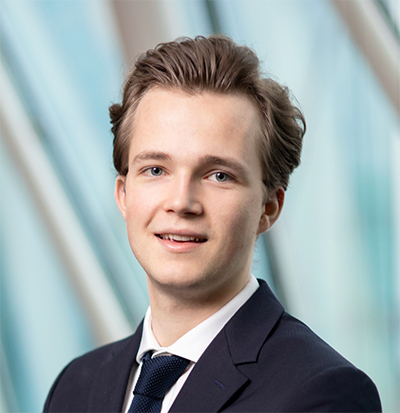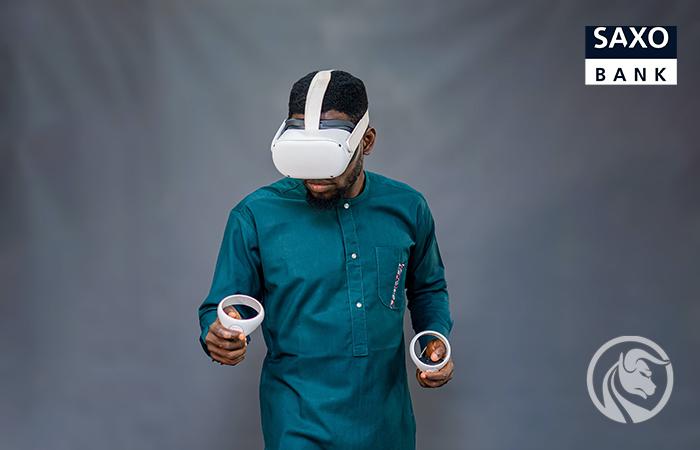Is the Metaverse close?
After renaming Facebook at the Meta last year, the whole world started talking about the so-called metaverse metaverse). Although Meta is still investing heavily in it, it seems that metaversum is still a long way from becoming popular, given the current technology and the few virtual reality users. From last year even Cryptocurrency market de facto abandoned the idea of the metaversum as a use case in the foreseeable future.
In October 2021, Facebook changed its name to Meta. This change reflected the company's emphasis on the metaversum, which is undoubtedly part of the company's long-term strategy to maintain its importance in the market. In the months following the name change, it became apparent that the public enthusiastically welcomed the prospect of living in the metaversum in the not-so-distant future. Also, the cryptocurrency market quickly recognized the metaverse as another important field for the use of cryptocurrencies. However, just a year later, people apparently forgot about the issue completely, leaving aside the Meta investors who were attracted by the fact that the company spent $ 10 billion on metaversum development last year. The overall focus appears to have shifted from the potential digital universe to rising inflation and the current global problems. Nor does it seem as though we are getting any closer to the popularization of metaversum technology.
Metawersum - a combination of social media and virtual reality
The metaverse is a second - virtual - universe in which users would engage in vivid social interactions such as shopping, education, eating, and participating in sports events with family and friends. In other words, the metaversum is a combination of social media and virtual reality (VR) to bring social interactions to a virtual world accessible from anywhere on Earth. For example, instead of communicating via FaceTime, you can recreate your own living room in the metaverse to feel closer to your friends living far away thanks to virtual reality. You and your loved one can also join a live spinning class, soccer match or concert - and be in the front row. In addition to social gatherings, the metaversum can be used to create classes for children who cannot be physically at school. In the professional context, the metaversum can, in turn, be used to simulate a full working day with various tasks for a medical student.
At this point, the final vision of the metaverse is to combine these use cases to create a second - virtual - universe in which to live your own life. Based on virtual reality, the digital universe can partially replace the physical world - instead of going to the real Old Bond Street in London, you can go to its metaverse counterpart. There you can walk around shops such as Prada, Gucci or Louis Vuitton. There are no queues at these stores, as help is offered immediately by a personal stylist based on artificial intelligence. After purchasing a Louis Vuitton bag, the user receives an invitation to the brand's fashion show at the metaverse on the same day. You can also invite an accompanying person with one click to participate in it, even though they live on the other side of the world. During the fashion show, you can reschedule the meeting in the metaversum with the physics teacher, as the company offering these classes always has teachers available.
The final vision of the metaverse offers a more comprehensive service, greater flexibility, affordable entertainment, and no need for transportation for users. For businesses, metawersum provides a more personalized interaction with customers, a greater set of marketing tools, and potentially cost savings as the enterprise may close a significant portion of brick-and-mortar stores and lay off employees.
Cryptocurrencies are coming
In the virtual universe described above, it is likely that you will have goods such as a plot of land or a house. In this way, it will be possible to recreate the real world in a way, along with the prestige of owning a house in an elegant neighborhood - it will simply be in the metaverse. However, the metaverse is unlikely to be covered by one and the same standard, meaning there will be multiple versions of it. As a result, there may be an infinite number of famous streets, such as Old Bond Street, in different universes, when there is only one in the real world. This blurs the idea of significant ownership in the metaverse quite severely, as it raises doubts from brands such as Prada, Gucci, and Louis Vuitton as to which standard to choose.
Nevertheless, due to ownership issues in the metaverse, the cryptocurrency market quickly seized the opportunity to be considered a use case for cryptocurrencies. Handling property in form non-exchangeable tokens (NFT), the metaverse may offer more genuine ownership. Instead of a property being an entry in the register in a centralized database owned by a large corporation, such an entry can be issued in blockchain technology in the form of NFT to ensure full ownership of the property. This could allow users to easily port the NFT between different versions of the metaverse. However, the cryptocurrency market seems to have forgotten the metaverse as quickly as it was willing to implement it, as since last year the sale of virtual land declined by as much as 98% and prices were going down faster than saying "higher interest rates".
Metaverse is nothing without virtual reality
In our opinion, it is important to distinguish whether the goal of the metaversum is social interaction or not. If the goal was to have personal entertainment in virtual reality, it can be easily done with current VR technology - and the situation continues de facto for years. In this context, it should be remembered that Meta acquired the manufacturer of virtual reality headsets Oculus in 2014 and launched its first headset in 2016, so the technology has been around for years.
Despite this, the popularity of virtual reality is still limited. The report of Statista estimates that in 2021, 6,1 million VR sets were sold, in the global terms, the total installed base is therefore about 16,44 million units. For comparison, Apple sold 2021 million iPhones in 240. This means that few people use VR, e.g. for games or other entertainment, although this technology is available at a reasonable price, especially for players who already have a decent computer or game console.
The industry is probably not yet mature enough to have a sufficient number of high-quality games and other entertainment services available. For example, not every Premier League match is broadcast in virtual reality yet. The industry has thus faced the chicken and egg paradox, where few actors are willing to offer VR content as the market is relatively small so far. On the other hand, due to the small amount of content, few people acquire the necessary virtual reality equipment.
Metaverse perspectives
As activities without social interaction, such as entertainment, have not yet become particularly popular in virtual reality, it is obvious that the metaverse is still a long way from becoming a virtual universe. This is simply because a network effect is necessary for the metaverse to become a site of social interaction. For it to become a second universe in which we would maintain social relationships, virtual reality must become much more widespread, enabling us to connect with loved ones. On the other hand, the driving force behind the development of virtual reality must be entertainment, which has so far been unsuccessful.
In addition, it could be argued that the technology that allows for social interaction - and thus the essential basis of the metaversum - is not yet convincing enough. In this context, attention should be paid to the computer game The Sims from 2004. The most visible product, which was created thanks to the USD 10 billion spent on the metaverse by Meta last year, are human avatars, deceptively reminiscent of the Sims 2 game. for the 2004 game. This would be true even assuming that these people would have VR equipment, a decent computer and the necessary internet connection.
Amara's Law states that we overestimate the effect of a given technology in the short term, and underestimate it in the long term. This may also be the case of the metaversum, but its vision as a second universe is most likely quite distant. In our opinion, for the foreseeable future, the most likely result of the massive investment in the metaversum will be the stable diffusion of virtual reality as a source of personal entertainment. Over time, this may pave the way for the metaverse as a second social universe.
 About the author
About the author
Mads Eberhardt, Cryptocurrency Market Analyst, Sax Banks. Cryptocurrency Market Analyst at Saxo Bank. He gained experience as a trader at Bitcoin Suisse AG and founder http://BetterCoins.dk (website taken over by Coinify).






















![Forex Club – Tax 9 – Settle tax on a foreign broker [Download the Application] Forex Club - Tax 9](https://forexclub.pl/wp-content/uploads/2024/02/Forex-Club-Podatek-9-184x120.jpg?v=1709046278)
![Trading View platform – solutions tailored to the needs of traders [Review] trading view review](https://forexclub.pl/wp-content/uploads/2024/03/trading-view-recenzja-184x120.jpg?v=1709558918)
![How to connect your FP Markets account to the Trading View platform [Guide] fp markets trading view](https://forexclub.pl/wp-content/uploads/2024/02/fp-markets-trading-view-184x120.jpg?v=1708677291)
![How to invest in ChatGPT and AI? Stocks and ETFs [Guide] how to invest in chatgpt and artificial intelligence](https://forexclub.pl/wp-content/uploads/2023/02/jak-inwestowac-w-chatgpt-i-sztuczna-inteligencje-184x120.jpg?v=1676364263)


![WeWork – the anatomy of the collapse of a company valued at $47 billion [WeWork, part II] wework bankruptcy story](https://forexclub.pl/wp-content/uploads/2024/04/wework-bankructwo-historia-184x120.jpg?v=1711729561)
![Adam Neumann – the man who screwed up Softbank [WeWork, part AND] adam neumann wework](https://forexclub.pl/wp-content/uploads/2024/04/adam-neumann-wework-184x120.jpg?v=1711728724)





![How to transfer shares to another brokerage office [Procedure description] how to transfer shares to another brokerage house](https://forexclub.pl/wp-content/uploads/2024/03/jak-przeniesc-akcje-do-innego-biura-maklerskiego-184x120.jpg?v=1709556924)

![The most common mistakes of a beginner trader - Mr Yogi [VIDEO] Scalping - The most common mistakes of a beginner trader - VIDEO](https://forexclub.pl/wp-content/uploads/2024/03/Scalping-Najczestsze-bledy-poczatkujacego-tradera-VIDEO-184x120.jpg?v=1711601376)
![Learning patience: No position is also a position - Mr Yogi [VIDEO] Scalping - Learning patience - No position is also a position - VIDEO](https://forexclub.pl/wp-content/uploads/2024/03/Scalping-Nauka-cierpliwosci-Brak-pozycji-to-tez-pozycja-VIDEO-184x120.jpg?v=1710999249)
![When to exit a position and how to minimize losses - Mr Yogi [VIDEO] Scalping - When to exit a position and how to minimize losses - VIDEO](https://forexclub.pl/wp-content/uploads/2024/03/Scalping-Kiedy-wyjsc-z-pozycji-i-jak-minimalizowac-straty-VIDEO-184x120.jpg?v=1710336731)









